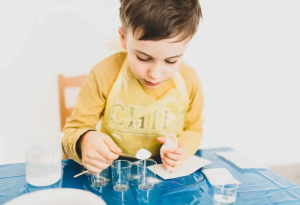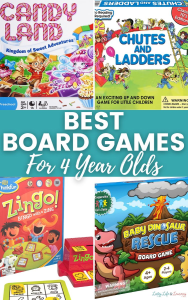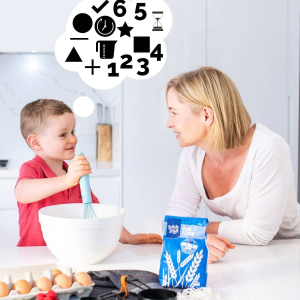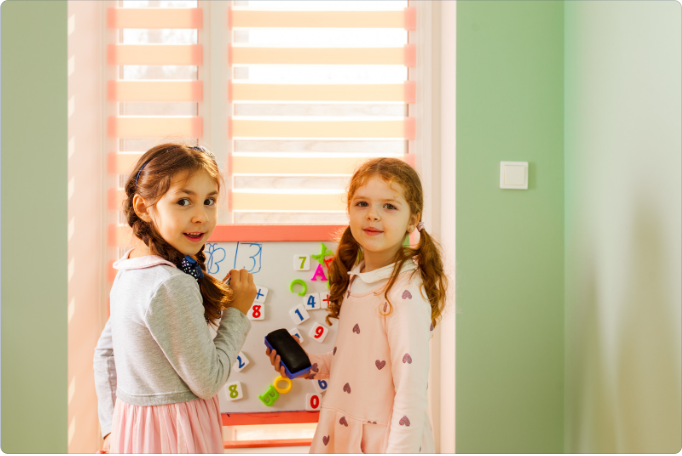Problem-solving activities can help children build resilience, think critically, and develop confidence in their ability to tackle challenges.
But it can be challenging to find engaging and age-appropriate activities that promote problem-solving skills in preschoolers.
We will share Problem Solving Activities for Preschool at home or in the classroom.
From simple puzzles to complex challenges, these activities will help your child develop problem-solving skills that will serve them well throughout their lives.
Shape Sorters:

Shape sorters are one of the best problem-solving activities for preschoolers. They are simple yet effective tools that help children develop their critical thinking and problem-solving skills. Shape sorters come in different shapes and sizes, and they are designed to help children sort and match different shapes and colors.
Playing with shape sorters helps children develop their hand-eye coordination, fine motor skills, and cognitive abilities. As they fit the different shapes into the corresponding holes, they learn about shape recognition, spatial awareness, and cause-and-effect relationships.
Related: Free Printable Math Worksheets for Preschoolers
Building Towers with Blocks:

Building towers with blocks is a classic activity that encourages children to problem-solve as they work to create a stable structure. Children must figure out how to balance and stack the blocks to create a tower that won’t topple over. This activity helps children develop their spatial reasoning, critical thinking, and problem-solving skills as they adjust their approach to create a more stable structure.
Related: 20 Best Pre-Writing Activities for Preschoolers
Treasure Hunts:

Treasure hunts are an exciting way to encourage children to solve problems and work collaboratively. Parents or caregivers can create a series of clues and riddles that lead children to a hidden “treasure.” Children must use their problem-solving skills to decipher the clues and find the treasure. This activity promotes critical thinking, spatial awareness, and teamwork.
Memory Games:

Memory games are a great way to challenge children’s cognitive abilities and improve their problem-solving skills. These games involve laying out a set of cards face down and having children flip over two cards at a time to try and match pairs. This activity helps children develop their memory, focus, and attention to detail.
Related: 20 Winter Math Activities for Preschoolers
Puzzles:

Puzzles are a fantastic way to promote problem-solving skills in young children. These activities require children to use their critical thinking and spatial reasoning skills to fit puzzle pieces together. Puzzles can range in difficulty from simple shapes to more complex scenes, and they can be adjusted to fit the child’s developmental level.
Obstacle Courses:

Obstacle courses are a fun and engaging way to encourage children to solve problems and work on their motor skills. Parents or caregivers can create a series of obstacles that children must navigate to reach a specific goal. This activity promotes critical thinking, spatial awareness, and coordination. Obstacle courses can be adjusted to fit the child’s age and developmental level, making them a versatile and effective tool for promoting problem-solving skills in young children.
Storytelling:

Storytelling is an excellent way to promote problem-solving skills in preschoolers. By listening to stories, children are exposed to different scenarios and situations that require problem-solving skills. Parents or caregivers can encourage children to think about how the story’s characters solve their problems and ask them to come up with solutions to hypothetical problems.
Cooking:

Cooking is a fun and interactive way to promote problem-solving skills in preschoolers. Children must follow recipes, measure ingredients, and work collaboratively with others to create a finished dish. This activity helps children develop their critical thinking, math skills, and ability to follow instructions.
Role Play:

Role-playing is an excellent way to encourage problem-solving skills in young children. Children can pretend to be doctors, firefighters, or police officers and work together to solve problems and complete tasks. This activity promotes critical thinking, teamwork, and imagination.
Guessing Games:

Guessing games, such as “I Spy” or “20 Questions,” is an excellent way to encourage problem-solving skills in young children. These games require children to use their critical thinking and deductive reasoning skills to guess the answer correctly. This activity promotes memory, concentration, and attention to detail.
Science Experiments:

Science experiments are an engaging way to encourage problem-solving skills in young children. These activities require children to observe, hypothesize, and test their theories. Parents or caregivers can conduct simple science experiments, such as mixing baking soda and vinegar, to teach children about cause and effect. This activity promotes critical thinking, experimentation, and curiosity.
Sensory Play:

Sensory play is an excellent way to promote problem-solving skills in young children. By playing with different textures and materials, children can explore cause-and-effect relationships and develop their critical thinking skills. Parents or caregivers can set up sensory bins with materials such as rice, sand, or water to encourage children to explore and problem-solve.
Board Games:

Board games are a great way to promote problem-solving skills in preschoolers. These games require children to use their critical thinking and strategic planning skills to win the game. Games like Chutes and Ladders, Candy Land, and Connect Four are excellent choices for young children.
Scavenger Hunts:

Scavenger hunts are a fun and interactive way to encourage problem-solving skills in young children. Parents or caregivers can create a list of items for children to find and encourage them to work collaboratively to solve clues and find the items. This activity promotes critical thinking, teamwork, and spatial awareness.
Creative Building:

Creative building activities, such as using play dough, clay, or craft materials, are an excellent way to promote problem-solving skills in young children. Children can use their imagination and creativity to problem-solve and create their structures and designs. This activity promotes critical thinking, spatial awareness, and creativity.
Sensory Bins:

Sensory bins are a fun and interactive way to promote problem-solving skills in preschoolers. Parents or caregivers can set up a bin filled with different materials, such as sand, rice, or beans, and hide different objects or toys within them. Children have to use their problem-solving skills to find and identify the objects hidden within the bin. Sensory bins also promote fine motor skills, sensory exploration, and creativity.
Art Projects:

Art projects are a great way to promote problem-solving skills in young children. By encouraging children to create their art projects, parents or caregivers can help them develop their problem-solving skills by encouraging them to think creatively and find solutions to design challenges. This activity promotes critical thinking, creativity, and fine motor skills.
Cooking and Baking:

Cooking and baking are great activities to promote problem-solving skills in preschoolers. Children can measure ingredients, follow directions, and problem-solve how to mix ingredients together properly. This activity promotes critical thinking, math skills, and following directions.
Outdoor Exploration:

Outdoor exploration is an excellent way to promote problem-solving skills in young children. Parents or caregivers can take children on nature walks or hikes and encourage them to explore and problem-solve by finding different types of plants, animals, and natural landmarks. This activity promotes critical thinking, creativity, and nature appreciation.
Science Kits:

Science kits are a fun and interactive way to promote problem-solving skills in preschoolers. There are many science kits available that are age-appropriate and designed specifically for preschoolers. These kits provide children with hands-on opportunities to experiment and explore scientific concepts, which promotes curiosity, critical thinking, and problem-solving skills. Some science kits may include materials for making slime, growing crystals, or exploring the properties of magnets.
Dramatic Play:

Dramatic play activities provide opportunities for preschoolers to use their imaginations and problem-solving skills.
Related: Examples of Dramatic Play for Preschoolers
Parents or caregivers can set up a pretend play area with costumes, props, and toys that encourage children to use their problem-solving skills to navigate different scenarios and situations.
For example, children can play doctor and use problem-solving skills to diagnose and treat a patient, or they can play chef and use problem-solving skills to plan and prepare a meal. Dramatic play promotes creativity, social-emotional development, and problem-solving skills.


